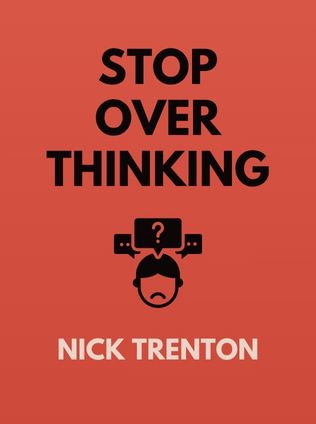
Stop Overthinking
23 Techniques to Relieve Stress, Stop Negative Spirals, Declutter Your Mind, and Focus on the Present (The Path to Calm Book 1)
By Nick Trenton
Published 03/2021
About the Author
Nick Trenton is an emerging voice in the realm of personal development, with a particular focus on emotional well-being and behavioral psychology. Holding a Master’s degree in Behavioral Psychology, Trenton is not only academically equipped to delve into the intricacies of the human mind but also deeply passionate about helping people overcome their mental hurdles. His work is geared towards providing actionable advice that is both research-based and practical. "Stop Overthinking" is the first book in his series "The Path to Calm," which also includes titles like "Transform Your Self-Talk" and "Calm Your Emotions." Through these works, Trenton aims to empower readers to take control of their mental habits and live more fulfilled lives, free from the shackles of anxiety and stress.
Main Idea
At the heart of "Stop Overthinking" lies a simple yet profound message: Overthinking is detrimental to both your mental and physical health. Trenton argues that this common habit, where one dwells excessively on problems or decisions, often leads to stress, anxiety, and a lack of resolution. Rather than providing solutions, overthinking creates a spiral of negative thoughts that further entrench the problem. To break free from this cycle, Trenton advocates for adopting effective stress management techniques and reshaping negative thought patterns into a more positive and productive mental framework. His approach is both pragmatic and empowering, encouraging readers to take charge of their mental processes and live a life driven by purposeful action rather than paralyzing fear.
Table of Contents
- Introduction
- Understanding Overthinking
- The Causes of Overthinking
- The Consequences of Overthinking
- Effective Stress Management Techniques
- Reframing Negative Thoughts
- Conclusion
Understanding Overthinking
Overthinking, as Trenton defines it, is the act of ruminating on a problem or decision to the point where it becomes counterproductive and harmful. It is the incessant replaying of events, decisions, or fears in one’s mind, often leading to a state of paralysis rather than progress. This habit of overanalyzing can turn even the smallest issue into a source of significant stress and anxiety. Trenton explains, "When you think about the same thing over and over again, your thoughts cease to add value or provide any solutions to the problem—they only create stress."
Overthinking often masquerades as problem-solving. People believe that by continuously thinking about an issue, they will eventually arrive at a solution. However, Trenton argues that this is rarely the case. Instead, the mind becomes trapped in a loop of worry, where each new thought only adds to the existing anxiety rather than alleviating it. This is where the real danger of overthinking lies—not in the thoughts themselves, but in the emotions they generate, which can be debilitating.
Sign up for FREE and get access to 1,400+ books summaries.
You May Also Like
The Subtle Art of Not Giving a F*ck
A Counterintuitive Approach to Living a Good Life
By Mark MansonRich Dad Poor Dad
What the Rich Teach Their Kids About Money - That the Poor and Middle Class Do Not!
By Robert T. KiyosakiHow To Win Friends and Influence People
The All-Time Classic Manual Of People Skills
By Dale CarnegieFreakonomics
A Rogue Economist Explores the Hidden Side of Everything
By Steven D. Levitt and Stephen J. Dubner



















